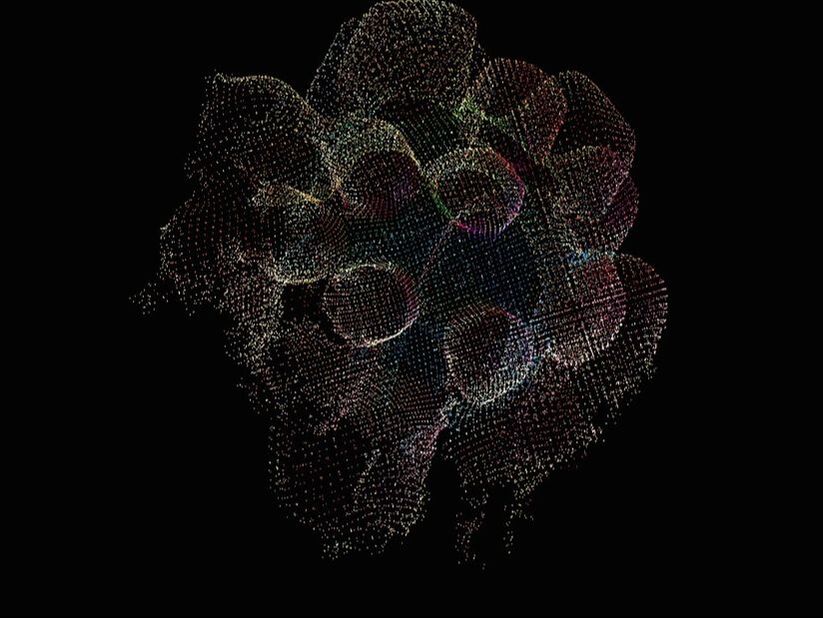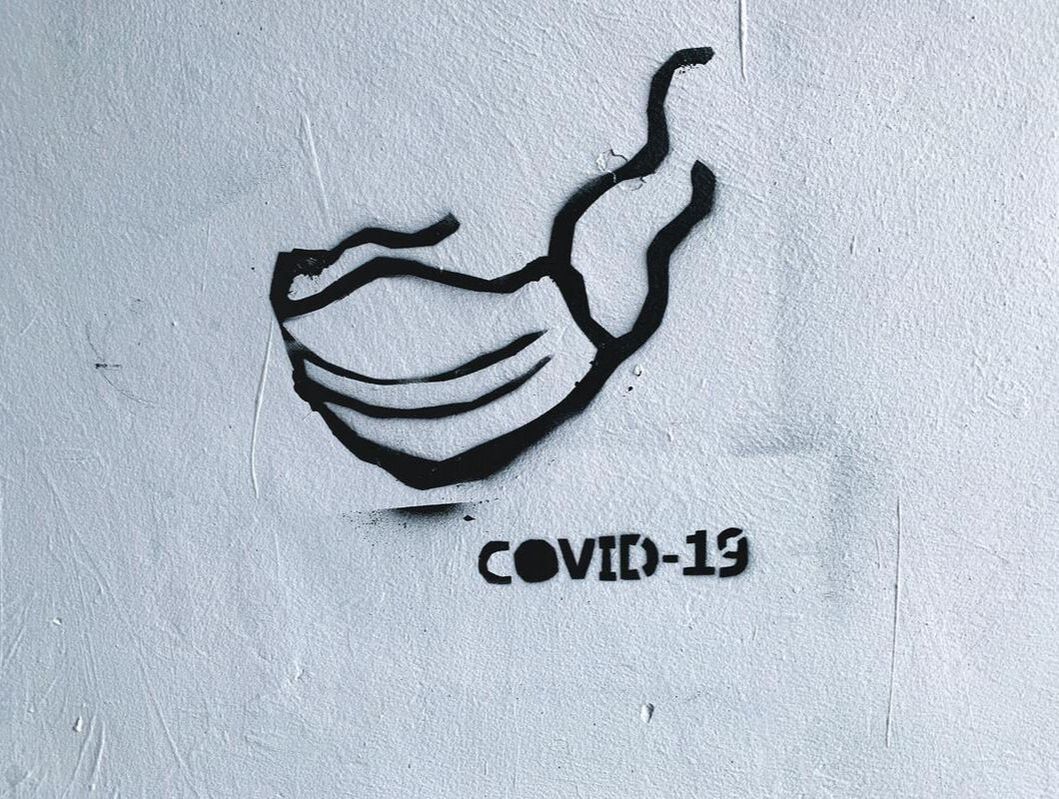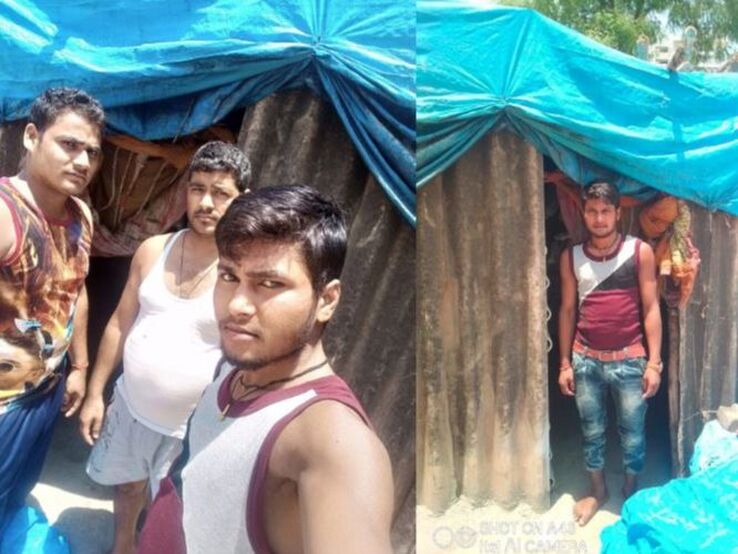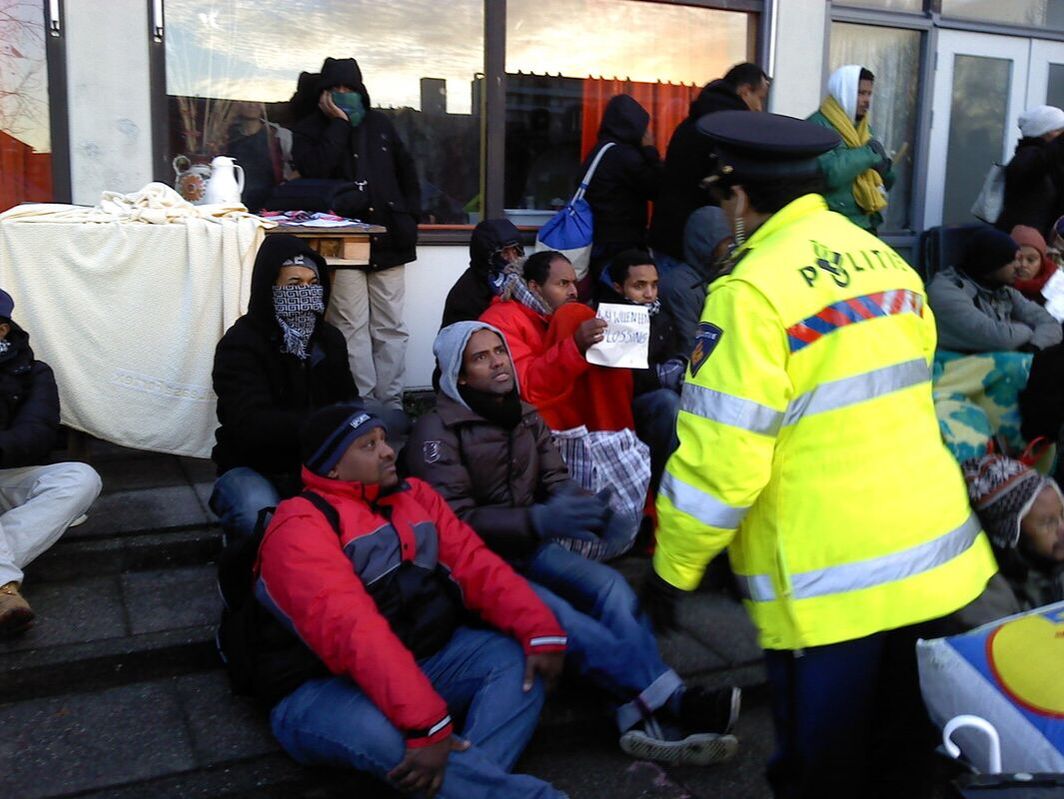|
Ravinder Kaur, University of Copenhagen, Denmark
COVID-19 is a truly global event. As the virus races past national borders claiming ever-new territories, the world seems to have come to an abrupt halt. Many nations across the world have undertaken emergency lockdown measures to contain the pandemic: from the closure of schools, universities and public institutions to cafes, restaurants and commercial establishments that facilitate social life. Airspaces and public transport have been closed, travel is minimal and public life is receding into private spaces as more and more people are asked to move to an online world. Put simply, the virus has turned a familiar world upside down, putting emergency brakes on a seemingly 24/7 non-stop world. The twenty-first century seems to be on pause, a pause that many are experiencing as an apocalyptic moment.
To think through this viral condition – a health emergency with profound social-political effects re-drawing our worlds – as apocalypse is to recover an older, mostly forgotten meaning of the term. Apocalypse means revelation, a moment when hidden knowledge, the inside workings of the world are revealed. It does not necessarily entail an end-of-the-world as such, but an end to how we have known and imagined it. If the world is exposed to the virus, the virus is exposing how the world works. The virus has imposed a state of emergency which is forcing us to confront ourselves.
0 Comments
Rachna Mehra, Ambedkar University Delhi, India
The COVID-19 pandemic across the world has reified the precarious transition brought about by a contagion which after colonizing a host of human bodies virulently spread beyond transnational borders causing a demographic and economic upheaval. While expeditious attempts are being made to discover the vaccine and find a cure for the disease, yet there is no alchemy that can serve as a panacea for the social turmoil which pre-existed the spread of the communicable disease and got exacerbated under the uncertain conditions produced by it. The syndrome may perhaps confound us for some more time but the response to it is unable to thwart some deep seated notions. This essay follows the bio-physiological trail of the pandemic alongside its sociological imputations and proposes that the imperceptible virus takes a more potent form when it permeates a corporeal being or is perceived to have emanated from a particular ethnic group, thus resulting in the effusion of inveterate prejudices whose containment is irremediable or beyond cure.
Nanna Bonde Thylstrup, Copenhagen Business School, Denmark; Zeerak Talat, University of Sheffield, UK; and Daniela Agostinho, University of Copenhagen, Denmark
Within the context of academia, much like in other sectors of society, the ongoing pandemic has exposed inequalities that we here describe as 'open secrets'. The disclosure of such open secrets, or 'hidden truths' that were never hidden to begin with, is being facilitated through the digitally networked spaces that bring us together more than ever. Engaging with the 'viral condition' foregrounded by this virtual symposium, this essay thinks through how the virality of digital media is currently intersecting with the unfolding viral pandemic. As we find ourselves connecting in new ways, we suggest that it is time to consider the challenges posed by digital networks, the troubled intimacies they generate, and their potential to forge alliances and solidarities amidst stark and growing inequality.
Rahul Mukherji, Jai Prasad and Seyed Hossein Zarhani, Heidelberg University, Germany
This article argues that COVID-19 management has undermined democratic governance central to the idea of India and close to the heart of founders of modern India. These values were undermined in a number of ways. First, sub-national states and politicians were not adequately consulted before the lockdown on 24 March 2020, even though Kerala’s spectacular performance was well known. Moreover, it is the states that would have to deal with issues such as health, migration and general wellbeing. The imperial and sudden lockdown impacted migrant workers from the oppressed classes and castes most severely. Second, the lockdown of 24 March need not have been sudden since opposition politicians had raised this issue in the Parliament since mid-February. Democratic values were undermined during the lockdown to the detriment of the Indian citizen.
Barbara Weinstein, New York University, USA
Back during the Obama years, a prime accessory in the right-wing bag of tricks designed to sour public opinion on what would become the Affordable Care Act (ACA) was the idea of 'death panels'. Even though the final version of the ACA relied entirely on private health plans, the slightest hint of a role for the state in regulating costs and eligibility for procedures raised the alarm that finite resources would mean certain people might be ruled too old or too impaired to be worthy of expensive medical treatments, and would be 'terminated' by panels of experts.
Robert Barnett, University of London, UK
The British government’s response to the coronavirus has been marked by a puzzling inconsistency. On 12 March 2020, the British leader, Boris Johnson, outlined his government’s pandemic policy. Only a few measures were needed, he said, primarily self-isolation for those with symptoms and hand-washing for the rest of us. His insouciance was explained by his advisers: it reflected the overall importance of achieving 'herd immunity'. They noted that this had a regrettable downside, the potential decimation of the vulnerable and the elderly.[1] But Johnson had a plan to protect them: he advised the elderly to reduce family visits and not to go on cruises.[2] That was it.
Aditi Saraf, Ashoka University, India and Megha Sharma Sehdev, Tufts University, USA
Historically, pandemics are known to expand and extend the authoritarian powers of state. In India too, the central government has mobilised the colonial-era Epidemic Diseases Act — to authorise search and quarantine measures, as well as censor and criminalize dissenting voices. In what follows, we explore the state’s broadened powers of surveillance and policing in two frontier zones of South Asia: Kashmir and Punjab. Both regions are marked by long histories of resistance, and brutal state suppression including torture, violence and extrajudicial killings. In the Kashmir Valley, a movement for liberation from Indian rule has been ongoing since 1989. In Punjab, a militant separatist movement raged between the 1970s and 1990s before losing popular support, though many accounts suggest the movement perseveres, especially in the diaspora. The recent arrival of COVID-19 has served to augment and distort surveillance in these regions, folding them further into the ambit of state control.
Anjali Gera Roy and Swatee Sinha, Indian Institute of Technology, India
This essay dwells on the notion of invisible borders and suggests that segregation as a practice is infused within the urban infrastructure. Taking as its focal point the predicament of migrant labourers employed in the informal sector of the economy against the backdrop of the COVID-19 pandemic, it unravels a politics of the border which has always informed state policies. Migrants are often treated as parasites and as a social menace who flock to the cities and clog its civic space. While they are a much needed anomaly, bolstering the material infrastructure of the neoliberal economy by providing semi-skilled and skilled labour, they also pose a threat to its resilience. Redundant man power in the form of unemployed labour may bog down the economic momentum. Excess man power needs to be expelled to retain systemic efficiency. With the outbreak of the COVID-19 pandemic, this miscellaneous crowd of undernourished and underpaid workers with their compromised immune systems suddenly transformed into a hot bed of viral escalation. In the absence of a clear cut logistics that could ensure food, shelter and social security for the unemployed labourers during the period of lockdown, the administration could only subject them to more rigorous drills as part of its sanitisation drive. The essay brings to the fore the voice of migrant workers mostly from the northern part of India who have emigrated to the ‘tech hubs’ of India in search of a livelihood and through their narration brings out their precarious positioning within the metropolitan civic space which treats them as a necessary menace. It is based on telephonic interviews with 25 displaced migrants in Bangalore, Delhi, Hyderabad, Telangana hailing from districts in UP and Bihar conducted between 24-29 April 2020.
Eli Cook, Haifa University, Israel
After the Great Recession in 2008, Harvard economist Kenneth Rogoff became one of the leading voices calling for budget-slashing austerity. Despite the fact that central banks had pumped billions into banks and capital markets to keep the financial system afloat, when it came to hospitals, schools, welfare programs or infrastructure – Rogoff and many other mainstream economists suddenly were not so generous. Claiming (with what later was discovered to be highly dubious data), that any country with a national debt to GDP ratio above 90 percent essentially destroys its prospects for future economic growth, Rogoff became a central advocate for the kind of neoliberal austerity that decimated welfare states across the globe in the years after the 2008 crisis.[i]
Barak Kalir, University of Amsterdam, Netherlands
Illegalised migrants – people who are denoted an illegal status by the state authorities and are thereby rendered deportable (undocumented/irregular migrants and so-called failed or bogus asylum seekers) – mostly find work in notorious 3D jobs: dirty, dangerous and demanding. An oppressive treatment of illegalised migrants by the authorities presents this already marginalised and weak population with 3D threats: desertion, detention and deportation. In the wake of the COVID-19 pandemia these threats take on new dimensions in placing illegalised migrants under increased and palpable risk for their lives. Declaring people’s status 'illegal', state institutions often deny them access to healthcare services, shelter and other basic needs. The new realities of the COVID-19 pandemia throw into question the institutional approach in managing illegalised migrants. Beyond the inhumanity implicit in abandoning tens of thousands of people within states’ sovereign territory, can states now afford not knowing the whereabouts of illegalised migrants and their health condition? At a time that criminals are released from prisons in light of the COVID-19 risk, is administrative detention of non-criminal migrants can be considered an appropriate policy?
|
The Viral Condition: Identities
|
Explore Identities at tandfonline.com/GIDE |
|
The views and opinions expressed on The Identities Blog are solely those of the original blog post authors, and not of the journal, Taylor & Francis Group or the University of Glasgow.










